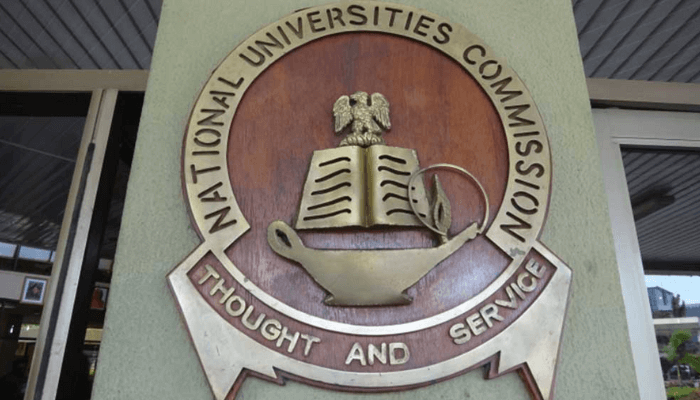NUC boss praises Africa Centres of Excellence initiative
The Executive Secretary, National Universities Commission (NUC), Prof. Abdullahi Ribadu, hailed the Africa Centres of Excellence (ACE) initiative.
Specifically, he noted that it has elevated Nigeria’s academic institutions into globally competitive hubs of knowledge generation, innovation, and development.
Speaking on Wednesday in Abuja at the pre-closure retreat for the ACE Impact Project, Prof. Ribadu urged beneficiary institutions to look beyond donor support and focus on its sustainability.
He emphasised that the Centres must transition from temporary project status into “permanent institutional assets,” while urging Vice-Chancellors and centre leaders to solidify their sustainability strategies.
The Guardian reports that the current funding phase is set to conclude on June 30.
Ribadu also urged them to secure diversified funding sources and entrench governance frameworks that attract both public and private investment.
“This project has empowered our universities and contributed significantly to regional integration and internationalisation.
“ACE Centres have produced high-quality master’s and PhD graduates, secured international accreditations, attracted major external funding, and driven innovation across key sectors such as health, agriculture, STEM, and education.
“This is not the end, but the beginning of a new phase of responsibility. We must scale up the gains of the past decade and ensure these Centres remain engines of growth and regional leadership,” he said.
Speaking on the achievements of the project, the National Project Coordinator of the ACE Project, Joshua Attah, said the project, which spans 17 centres housed within 14 Nigerian universities, had made significant strides.
Attah said these strides were made in research output, postgraduate training, and regional academic integration.
“These projects are not going away; what’s ending is the funding. But the infrastructure, the capacity, and the benefits to students and researchers remain firmly in place,” he said.
He added that the ACE Centres have been pivotal in training master’s and PhD students, including a growing number of foreign scholars, marking a revival in Nigeria’s regional academic leadership.
He explained that the ACE Impact had expanded the initiative to 53 centres across 11 countries, with Nigeria hosting the highest number, having 17 Centres of Excellence.
“These centres cover strategic areas such as maternal and child health, cybersecurity, sustainable power, dryland agriculture, food security, and digital science.
“They have collectively positioned Nigeria at the forefront of academic excellence and development-driven research on the continent,” he added.
Attah further said the 17 centres had earned $89.1 million through the achievement of Disbursement Linked Indicators (DLIs) and generated additional funding of over ₦3.2 billion, $24.9 million, €1.77 million, and £589,000 from local and international sources.
According to him, these resources have been deployed to improve infrastructure, acquire cutting-edge equipment, support scholarships with gender inclusivity, and secure both national and international accreditations.
“Notably, 128 programmes have been accredited by NUC, with several others receiving international endorsements.
“The Centres have recorded a total enrolment of 33,347 students, comprising both national and regional students.
“Among these are 924 regional students (294 of whom are female and 630 male) and 6,129 national students (including 2,681 females and 3,448 males).
“In terms of graduate-level enrolment, a total of 6,945 students are pursuing advanced degrees. Of this number, 1,862 are PhD students and 5,083 are pursuing MSc degrees,” he added.
Attah challenged the universities to generate funding from the projects to enhance its sustainability.
Prof. Christian Happi, Director of the African Centre of Excellence for Genomic Infectious Diseases (ACEGID) at Redeemer’s University, emphasised that the success of the ACE programme lies not only in scientific achievement but in its regional integration.
Happi said it has also attracted international grants and students, which was a hallmark of a sustainable and internationally respected academic model.
Corroborating this, Prof. Ibiyemi Bilola Olatunji-Bello, Vice-Chancellor, Lagos State University (LASU), highlighted the success of the university’s own ACE project, the Centre of Excellence in STEM Education.
“Our centre has helped us gain international accreditation and elevated LASU’s global academic standing. We’ve trained graduates from across Africa, including Gambia, Sierra Leone, Niger, and Gabon,” she said.
You may also like...
Diddy's Legal Troubles & Racketeering Trial

Music mogul Sean 'Diddy' Combs was acquitted of sex trafficking and racketeering charges but convicted on transportation...
Thomas Partey Faces Rape & Sexual Assault Charges

Former Arsenal midfielder Thomas Partey has been formally charged with multiple counts of rape and sexual assault by UK ...
Nigeria Universities Changes Admission Policies

JAMB has clarified its admission policies, rectifying a student's status, reiterating the necessity of its Central Admis...
Ghana's Economic Reforms & Gold Sector Initiatives

Ghana is undertaking a comprehensive economic overhaul with President John Dramani Mahama's 24-Hour Economy and Accelera...
WAFCON 2024 African Women's Football Tournament

The 2024 Women's Africa Cup of Nations opened with thrilling matches, seeing Nigeria's Super Falcons secure a dominant 3...
Emergence & Dynamics of Nigeria's ADC Coalition

A new opposition coalition, led by the African Democratic Congress (ADC), is emerging to challenge President Bola Ahmed ...
Demise of Olubadan of Ibadanland
Oba Owolabi Olakulehin, the 43rd Olubadan of Ibadanland, has died at 90, concluding a life of distinguished service in t...
Death of Nigerian Goalkeeping Legend Peter Rufai

Nigerian football mourns the death of legendary Super Eagles goalkeeper Peter Rufai, who passed away at 61. Known as 'Do...




